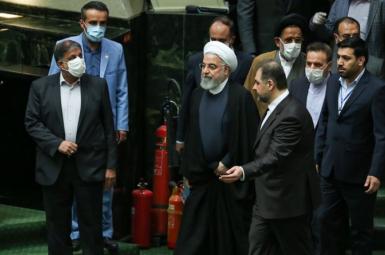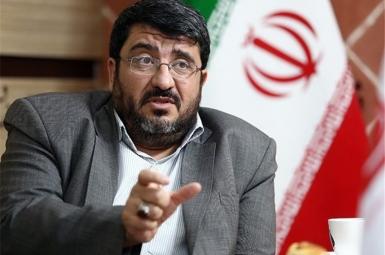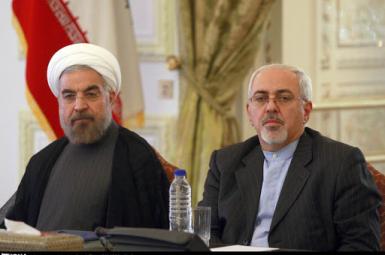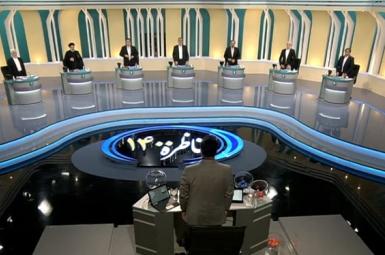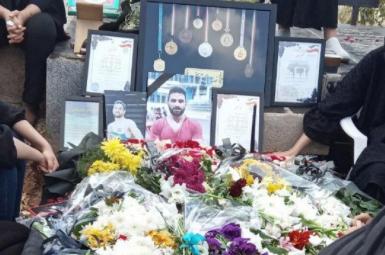
Will Rouhani And Associates Be Prosecuted Once Out Of Office?
President Hassan Rouhani, and close associates, vice-President Es'haq Jahangiri and presidential candidates Abdolnaser Hemmati, have been threatened with prosecution by candidates over mismanaging the country and making decisions allegedly detrimental to the national interest.
In feisty television debates over the June 18 presidential election, the five hardline candidates, two of whom withdrew Wednesday, concentrated their efforts on attacking Rouhani and his administration. In one debate, Chief Justice Ebrahim Raisi (Raeesi) said Rouhani should be held accountable for mis-handling an increase in gasoline prices in November 2019 that led to nationwide protests and the killing of hundreds by security forces, according to Amnesty International.
In a statement on Sunday [June 13], the Rouhani administration refuted Raisi's claim, arguing that the government was not responsible for handling the protests, which officials usually refer to as riots. Revolutionary Guards, riot police and regular soldiers were all involved.
Another candidate, Mohsen Rezaei (Rezaee), threatened during a debate to sue Hemmati "and others," presumably meaning other officials, for "colluding” with United States sanctions and promised to prevent them leaving the country and escaping prosecution if he became president.
Raisi attacked Hemmati for allegedly failing to reveal names of well-connected individuals who had not repaid large sums of money borrowed from banks. Hemmati responded by handing over a list of the names he claimed he had previously submitted to the judiciary.
Hardliner lawmakers have filed several lawsuits against Rouhani, including one in April for "mismanagement of the pandemic." In recent years relatives of government officials have faced prosecution by the hardline-dominated judiciary and in some cases jailed.
There are open corruption cases in the courts against Mehdi Jahangiri, brother of the vice-president, and Ahmad Araghchi, a former Forex deputy to the Central Bank governor and nephew of the senior diplomat Abbas Araghchi.
In the past, some officials of outgoing administrations have later faced prosecution. In 2014 Hamid Baghaei, previously a vice-president under Mahmoud Ahmadinejad was prosecuted for corruption and later sentenced to 15 years in prison. Esfandiar Rahim Mashaei, another vice-president under Ahmadinejad, was accused of sorcery and arrested in 2018.
Chief justice Raisi has little to fear while at home, whether elected president or not, but some groups abroad are calling for his arrest over his role in the summary executions of thousands of political prisoners in 1988 and alleged human rights violations during the rest of his judicial career.
Washington sanctioned Raisi in November 2019 as someone “associated with the Supreme Leader or the SLO “leader’s office]” under an executive order of then president Donald Trump (EO 13876), the same measure under which the US sanctioned Iranian foreign minister Mohammad Javad Zarif in July 2019.

